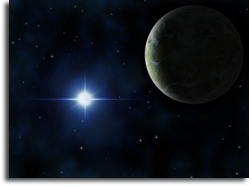“What Is the World Really Like?” How Materialism is the Religion of Darwinism
John Searle, the eminent professor of philosophy at U.C. Berkeley, once said that "there is a sense in which materialism is the religion of our time." Sometimes called naturalism, materialism here has nothing to do with greed or a lust for riches. It is the name of a philosophy -- the belief that physical matter is all that exists. Alex Rosenberg of Duke University's philosophy department has put it nicely: What is the world really like? It is fermions and bosons [elementary particles] and everything that can be made up of them, and nothing that can't be made up of them. To put it more simply still, the world consists of nothing but molecules in motion. And that does seem to be the philosophy of our time, at least within our most prestigious universities -- sometimes even including their theology departments. Materialism is itself an implausible philosophy, as another eminent philosopher, New York University's Thomas Nagel, recently wrote in his much-despised book Mind and Cosmos. Its subtitle gives the explanation: Why the Materialist Neo-Darwinian Conception of Nature is Almost Certainly False. The explicit materialism of the Darwinians is the mirror image of creationism. Creationists are easy for scientific materialists to rebut, because the materialists can say, "That is just your belief. We don't have to accept that." In a parallel way, we can say to the materialists: "That is just your belief. We don't have to accept that. And it is the real basis of your evolutionism." In between the Creationists and the Materialists we encounter the scientific evidence that makes the materialist position increasingly improbable -- the evidence that Stephen Meyer recently presented in Darwin's Doubt: information theory, insufficiency of the fossil record, epigenetics, complexity of life at the molecular level, and so on.




